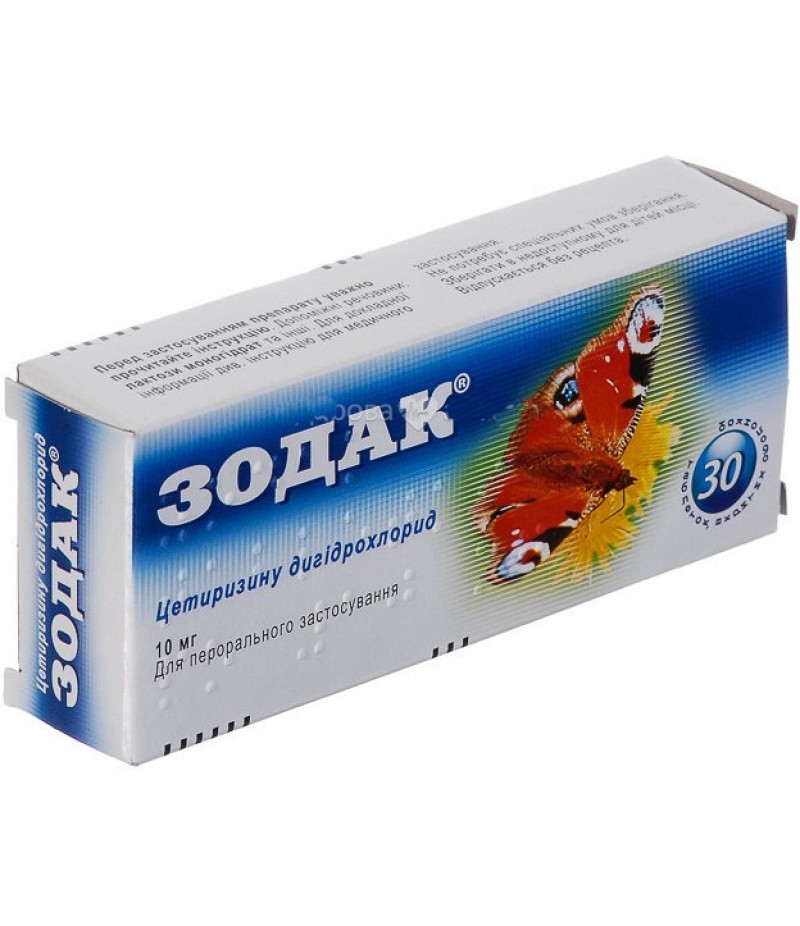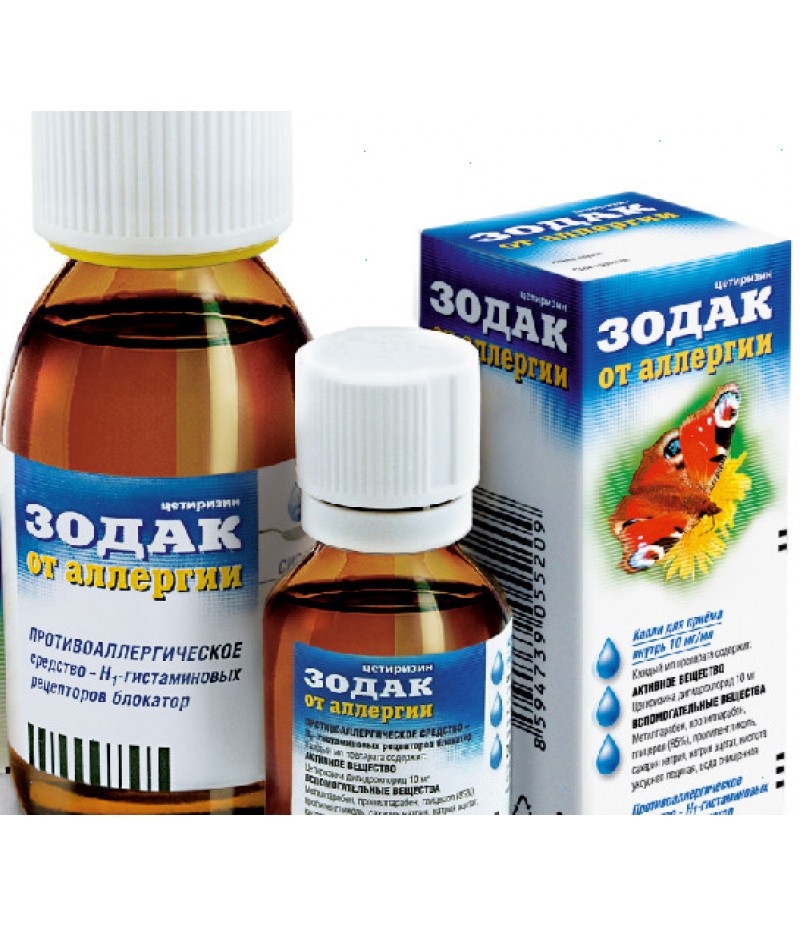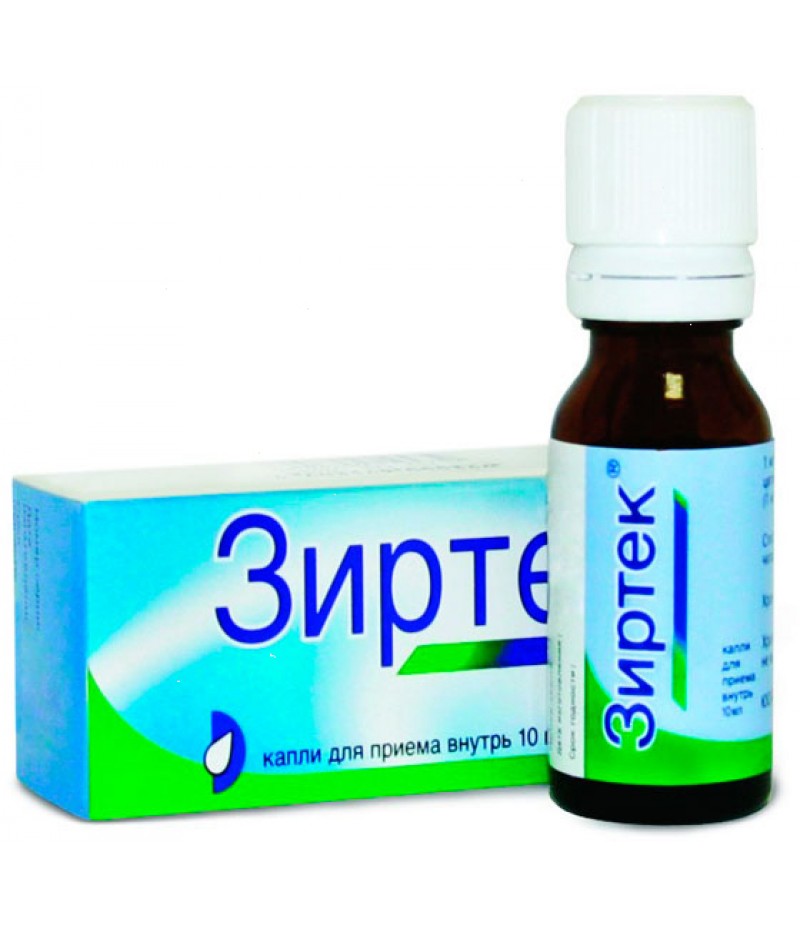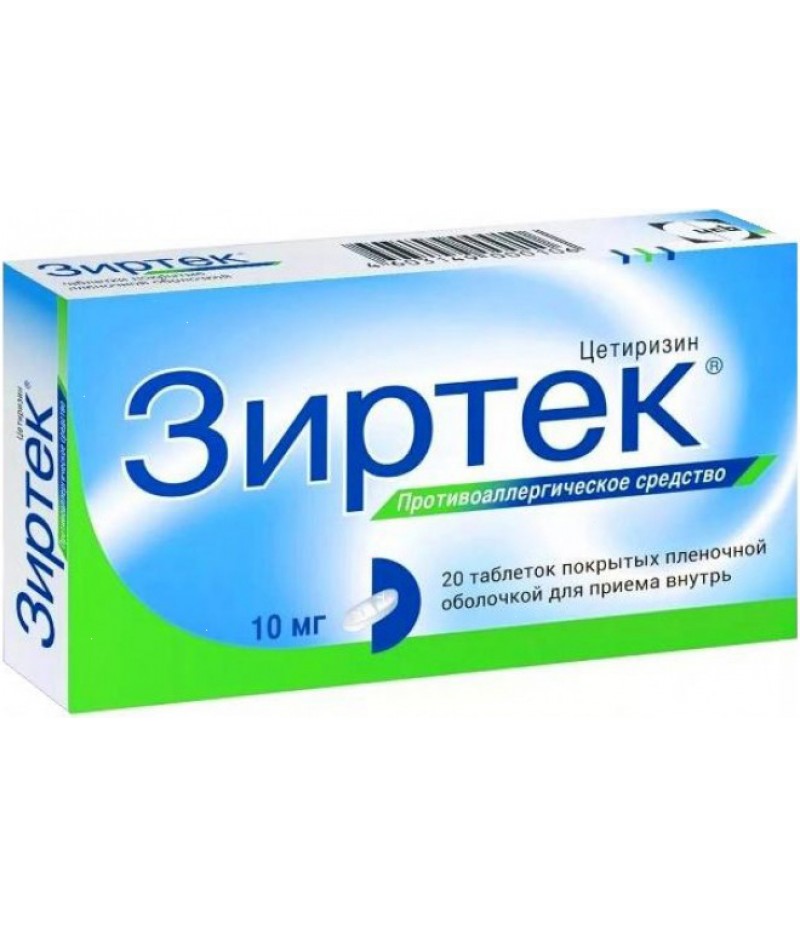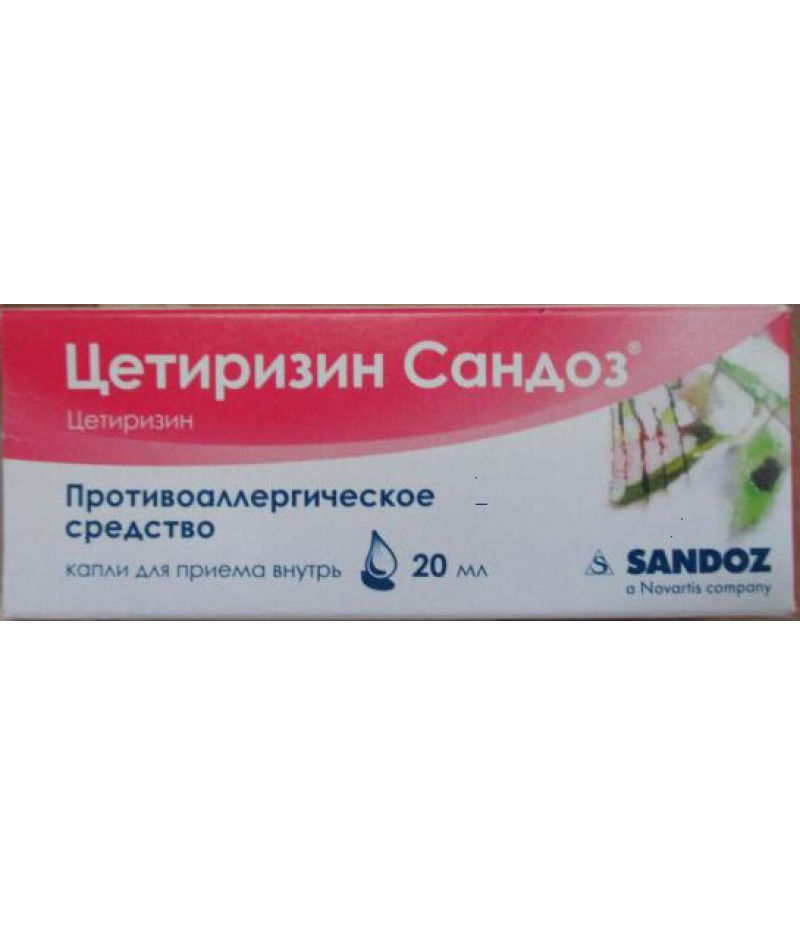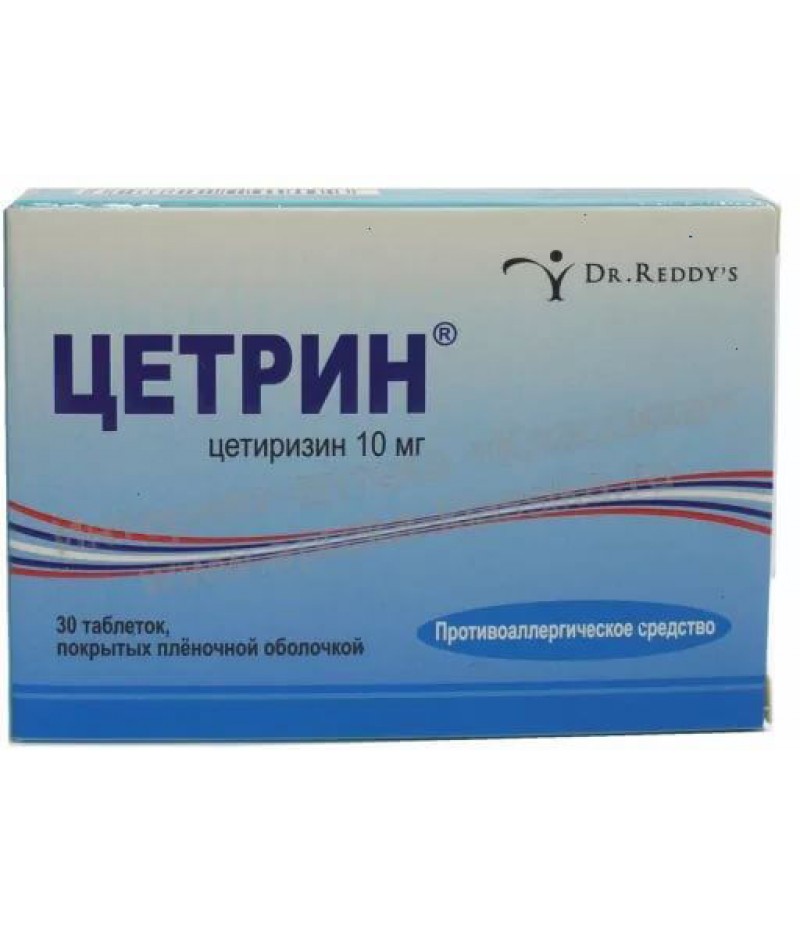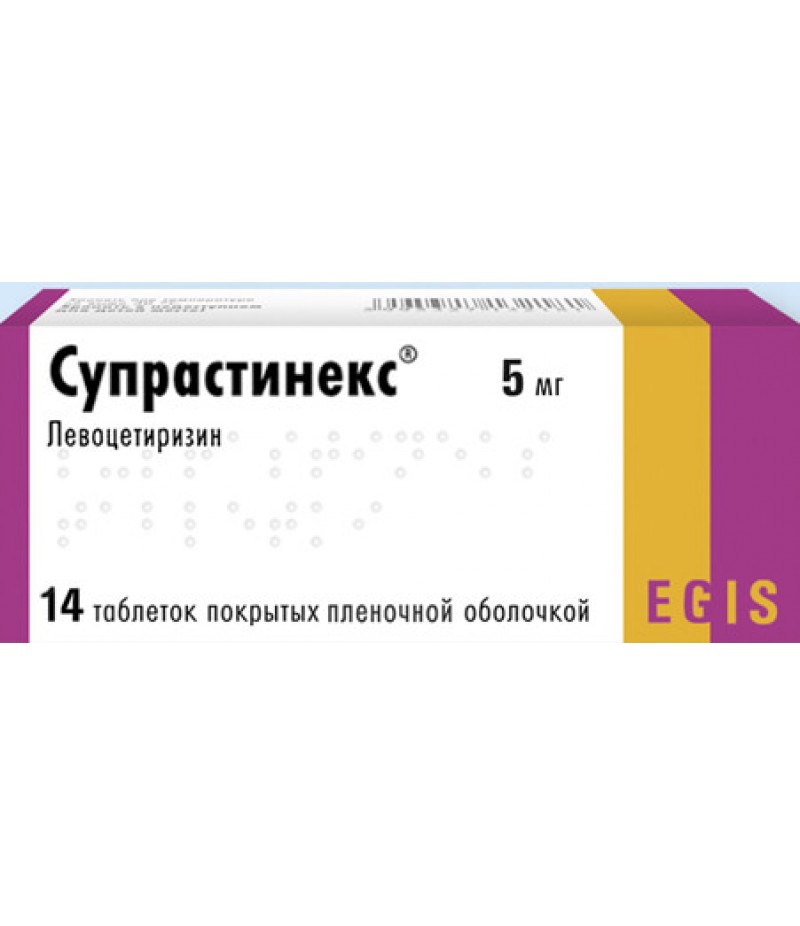Zodac tabs 10mg #30
- $16.37
- Availability:In Stock
Zodak instructions for use You can buy Zodak hereDosage Form Tablets coated with white or almost white, oblong, with a risk for division on one side.Composition Cetirizine dihydrochloride 10 mg Excipients: lactose monohydrate, cor..
Tags: tabs
Zodak instructions for use
You can buy Zodak here
Dosage Form
Tablets coated with white or almost white, oblong, with a risk for division on one side.
Composition
Cetirizine dihydrochloride 10 mg Excipients: lactose monohydrate, corn starch, povidone 30, magnesium stearate.
Pharmacological action
Cetirizine belongs to the group of competitive histamine antagonists, blocks H1-histamine receptors, has almost no anticholinergic and antiserotonin action. Has a pronounced anti-allergic effect, prevents development and facilitates the course of allergic reactions. Has antipruritic and anti-exsudative effect. Affects the early stage of allergic reactions, and also reduces the migration of inflammatory cells; oppresses the selection of mediators involved in a late allergic reaction. Reduces the permeability of capillaries, prevents the development of edema of tissues, relieves spasm of smooth muscles. Eliminates the skin reaction to the administration of histamine, specific allergens, and also to cooling (with cold urticaria). In therapeutic doses, it practically does not have a sedative effect. Against the background of the course, tolerance does not develop. The effect of the drug begins in 20 minutes (in 50% of patients), after 1 hour (in 95% of patients) and persists for 24 hours.
Pharmacokinetics
Absorption. After ingestion, cetirizine is rapidly and well absorbed from the digestive tract. The maximum level of concentration is determined after about 30-60 minutes. Eating
does not have a significant effect on the amount of absorption, but in
this case, the rate of absorption is slightly reduced.
Distribution. Cetirizine binds to blood plasma proteins by about 93%. The volume of distribution (Va) is low (0.5 l / kg), the preparation does not penetrate into the cell. The drug does not penetrate the BBB.
Metabolism. Cetirizine is poorly metabolized in the liver with the formation of an inactive metabolite. At 10-day application in a dose of 10 mg accumulation of the drug is not observed.
Excretion. Approximately 70% occurs through the kidneys, mostly unchanged. The system clearance is about 54 ml / min. After
a single dose, the T1 / 2 value is about 10 hours. In children aged 2
to 12 years, the T1 / 2 value decreases to 5-6 hours. If the renal
function is impaired (Cl creatinine below 11-31 ml / min) and in
patients on hemodialysis (Cl creatinine less than 7 ml / min), the
value of T1 / 2 increases by 3 times, Cl decreases by 70%. Against
the background of chronic diseases and in elderly patients there is an
increase in T1 / 2 by 50% and a decrease in clearance by 40%. Hemodialysis is ineffective.
Side effects
On the part of the digestive system: dry mouth, indigestion. From the side of the central nervous system: headache, drowsiness, fatigue, dizziness, agitation, migraine. Allergic reactions: skin rash, angioedema, hives, itching. The drug is usually well tolerated. Adverse events occur rarely and have a transient nature.
Special conditions
During the treatment period, it is necessary to refrain from
engaging in potentially dangerous activities that require an increased
concentration of attention and speed of psychomotor reactions. Care should be taken in patients with impaired liver and / or kidney function and elderly people. It is not recommended simultaneous use of drugs, oppressive central nervous system, alcohol.
Indication
seasonal and year-round allergic rhinitis and conjunctivitis; - itching allergic dermatoses; - Pollinosis (hay fever); - urticaria (including chronic idiopathic); - Quincke's edema.
Contraindications
children under 6 years. - Pregnancy; - lactation period; - Hypersensitivity to the components of the drug. With caution: chronic renal failure of moderate to severe severity (correction of dosing regimen is required), elderly age (glomerular filtration may be reduced).
Patient interaction
No clinically significant interactions of cetirizine with other drugs have been established. Joint
reception with theophylline (400 mg /) leads to a decrease in the total
clearance of cetirizine (theophylline kinetics does not change).

